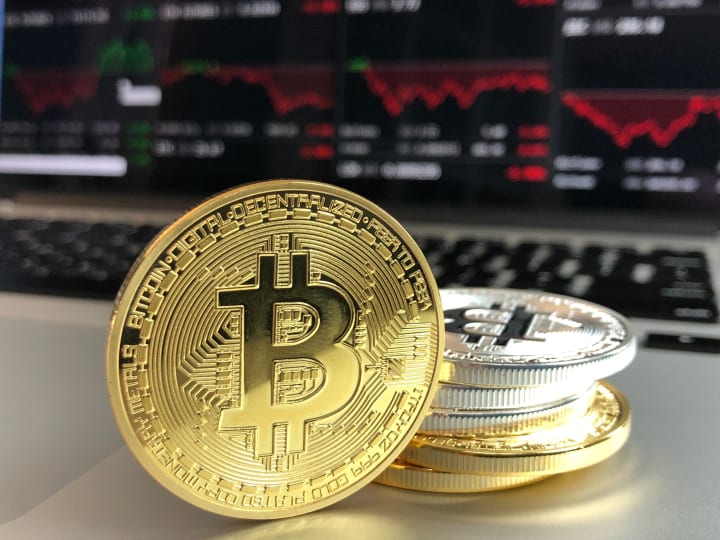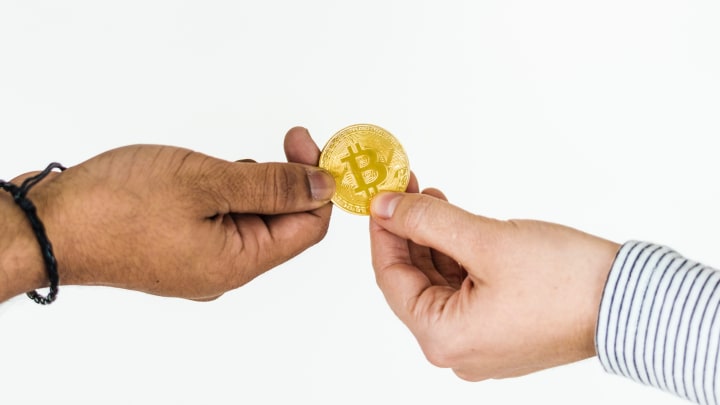Is It Legal to Buy Real Estate with Bitcoin?
Short answer: Yes, you can buy real estate with Bitcoin. It's not necessarily easy though.

The Bitcoin phenomenon has taken the world by storm. What began as a small-scale, innovative technology with few practical applications has evolved into a world-wide phenomenon that is altering the way currency and transactions work. Its beginnings sparked a whole new field of currency exchange: cryptocurrency. In the years since it first took root, Bitcoin has spread far past its original uses, which raises pressing questions today: What is the future of Bitcoin, and what are its limits? One relevant question within this realm of thought is this: Is it legal to buy real estate with Bitcoin?
First Purchases

Photo by David McBee from Pexels
In 2014, Bitcoin broke new ground, compared to other things it has bought, by being used to purchase land. Though the buyer in this transaction remains anonymous, it’s clear that this kind of financial interaction would only happen between two very tech-savvy parties. This development paved the way for new uses of cryptocurrency. However, these early Bitcoin-financed real estate purchases were made by first converting the cryptocurrency into US cash, and then making the purchase. It was in this manner as well that the first single family home purchase was made via Bitcoin. It wasn’t until much later that the first true Bitcoin-to-Bitcoin real estate transaction was made, showing signs that Bitcoin is going mainstream.
Real Estate Resistance

Photo by chuttersnap on Unsplash
As it has already happened, it’s clear that it is, in fact, legal to buy real estate with Bitcoin—at least in some places. However, the issue of purchasing real estate with digital currency is still a fairly complex one. This is in large part due to reluctance on the part of traditional realtors. Real estate markets rely on the concurrence of buyers and sellers, and many of the realtors and realty companies are not prepared to accept Bitcoin as a form of payment. So, those who wish to buy real estate with Bitcoin must first convert it to standard currency before they can buy a house or land. This hesitancy may be in part simply because the technology is new and unknown, and many simply don’t have the tech savvy to process these transactions. However, this hesitancy is also in large part due to the fact that the cryptocurrency market is still a volatile one. The real estate market is notoriously resistant to any extra volatility, and so, even where it would be legal, it may range from difficult to impossible to actually buy real estate with Bitcoin.
The Future of Bitcoin in Real Estate

Photo by rawpixel.com from Pexels
Those who are inclined to accept Bitcoin and process Bitcoin real estate transactions are very much on the cutting edge of a new frontier. Given the rising popularity of cryptocurrency, it’s not out of the question to predict that many or all markets may soon embrace Bitcoin. But as it stands, the real estate market may be particularly resistant to this kind of change. Another major concern for real estate buyers and sellers alike is security: While Bitcoin is designed around the security-enhancing concept of blockchain, it is still a very new technology, and has had its history of security failings. For fields where purchases are generally minor, this risk is outweighed by other factors. For massive transactions like buying a home, these kinds of risks take on a bigger significance. So while it may be legal to buy real estate with Bitcoin, many are still unsure if it would be wise.
Bitcoin's Volatility

Photo by energepic.com from Pexels
Despite the volatility and past security risks, there are many reasons to expect a bright future for Bitcoin in the real estate market. One significant factor to consider is the easy and secure transfer of titles that blockchain allows. This is a significant motivation for many to at least incorporate Bitcoin capabilities into their business model.
The real barrier to all Bitcoin real estate transactions is simply the scope of such transactions: It would be one thing to make a simple buyer-to-seller transaction, but a real estate purchase involves contracts and communications between different parties. This means that every party would have to be on board with the Bitcoin transaction in order for it to work without, at the very least, some transference of cryptocurrency into cash.
Ultimately, the likelihood of the real estate market embracing Bitcoin wholesale is entirely dependent on Bitcoin stabilization. Buyers and sellers alike will remain resistant to selling and purchasing real estate with Bitcoin so long as Bitcoin-to-US currency conversion rates are radically changing. It's no surprise that Bitcoin and the banks aren't on the best terms, and in transactions where the buyer first converts his or her Bitcoin into US currency, there’s no question of the final price paid. Because of this, both buyer and seller are able to enter into an informed contract. However, with a purely Bitcoin transaction, the agreed-upon price would have to be in Bitcoins. As such, any sudden change in conversion rates would mean that either the buyer or seller could lose out significantly. Given the volatility of cryptocurrency and the large amount of money involved in real estate purchases, this could mean losing out on a lot of money.
Taxes

Photo by Skitterphoto via pexels
Another barrier to Bitcoin transactions that many are considering is taxation. Comparisons of the requisite taxes from stock trading versus Bitcoin show that Bitcoin, at this point, might not be the wisest way to go. When Bitcoin was first used in the real estate market, it was too new for there to be many official tax constrictions. However, as of January 1, 2018, Bitcoin is legally classified as property. As a result, any transaction involving the trade of Bitcoin will require the buyer to pay capital gains. This alone is a significant motivational barrier for those who want to purchase real estate directly with Bitcoin. Furthermore, this is a consideration that had not been raised until US laws surrounding cryptocurrency changed at the beginning of 2018.
The Bottom Line
The bottom line is, it is legal to buy real estate with Bitcoin. However, legality is a secondary matter to practicality. A number of individuals have successfully completed real estate transactions using Bitcoin, but this is still a noteworthy few. Many analysts predict that this number will grow, but as it stands, you may find it difficult to find real estate brokers willing to accept Bitcoin.
About the Creator
Nicola P. Young
Lover of Books, Saxophone, Blogs, and Dogs. Not necessarily in that order. Book blogger at heartofinkandpaper.com.






Comments
There are no comments for this story
Be the first to respond and start the conversation.